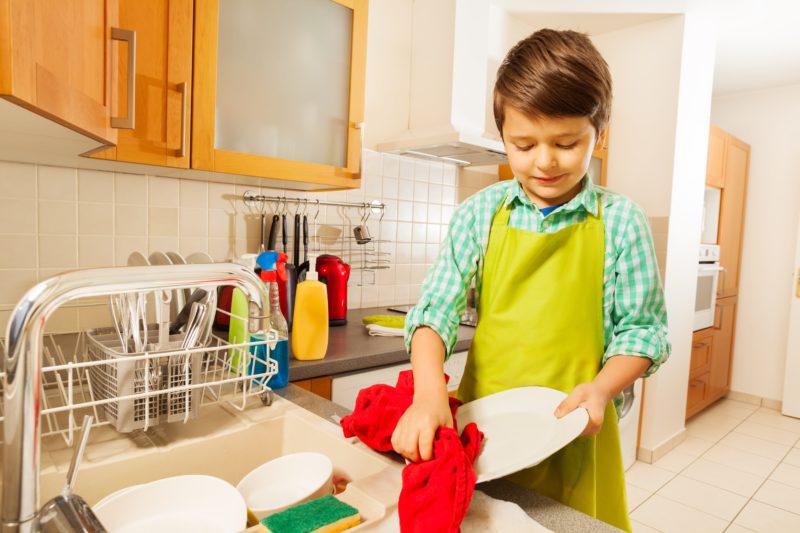Chores play a crucial role in helping children develop essential life skills that are just as valuable as those gained through academics, sports, and the arts. Chores provide meaningful opportunities for children to learn responsibility, teamwork, and self-care, all of which are vital for their growth and future success.
Chores are small tasks that children can easily accomplish, fostering a strong work ethic, confidence, and a sense of pride in contributing to family responsibilities. These activities teach children how to care for themselves, their home, and their loved ones, equipping them with skills they will use throughout their lives. Chores also help children learn about time management, preparation, and teamwork, empowering them to take on responsibilities with confidence.
Celebrating Your Child’s Contributions
Chores can be a wonderful way for children to feel involved and contribute to the family. Acknowledging their efforts can build a sense of pride and responsibility. It is important for parents to decide if and how they want to recognise their child’s hard work. Some families may choose to use rewards, such as extra screen time or letting the child choose a family activity, while others may prefer to simply praise the child’s effort without offering rewards. The approach chosen can vary based on what aligns best with your family’s values and your child’s personality.
Whether or not rewards are used, clear instructions and positive reinforcement help make chores a positive and fulfilling experience for children
Chores by Age Group: A Positive Approach
Children Aged Three to Five:
Personal Chores:
- Brush teeth (with supervision)
- Brush hair
- Get dressed
- Pick up toys
- Wash hands
- Put dirty clothes in the hamper
- Bin paper scraps and put lids on markers
- Place clean clothes away
- Pack their backpack
Family Chores:
- Set and clear the table with supervision
- Clear place at mealtime
- Feed the pets
- Bring in the mail
- Wash, dry, and put away dishes
- Help carry groceries
- Sort laundry by colour
Children Aged Six to Seven:
Personal Chores:
- Choose outfits and get dressed
- Make the bed
- Tidy bedroom
- Fold and put away clothes
- Make a small snack
- Pack and unpack backpack
- Shower or bathe independently
Family Chores:
- Empty the dishwasher
- Set the table
- Wipe down the table
- Help prepare food with supervision
- Water plants
- Change the toilet paper roll
- Sort recycling
Children Aged Eight to Nine:
Personal Chores:
- Make simple snacks
- Be responsible for personal hygiene
- Hang, fold, and put away laundry
- Be accountable for belongings
- Clean bedroom daily
- Set an alarm and wake up independently
- Get ready for school on their own
- Strip sheets off the bed
Family Chores:
- Walk the pets
- Load the dishwasher
- Put groceries away
- Peel vegetables and cook simple meals
- Do simple cleaning tasks
- Water plants and garden
- Wash the car with supervision
- Take out the garbage
- Help with younger siblings
Tips for Making Chores a Positive Experience:
- Start Early: Introduce chores when children are young to help them see these tasks as a natural part of family life.
- Give Specific Instructions: Break tasks down into simple steps and guide them through the process.
- Offer Praise: Encourage children by acknowledging their efforts and the difference they make.
- Focus on Effort, Not Perfection: Allow children to learn at their own pace and build confidence in their abilities.
- Empower Them to Take Responsibility: Let children take ownership of their chores, teaching them that everyone plays a role in the family.
- Use the “When/Then” Strategy: Encourage task completion with positive reinforcement, e.g., “When you’ve emptied the dishwasher, then you can go out and play.”
By framing chores as an opportunity for growth and contribution, you can help your child develop important life skills in a positive and empowering way. If you found these tips helpful, check out our Facebook page for more ideas and inspiration.


